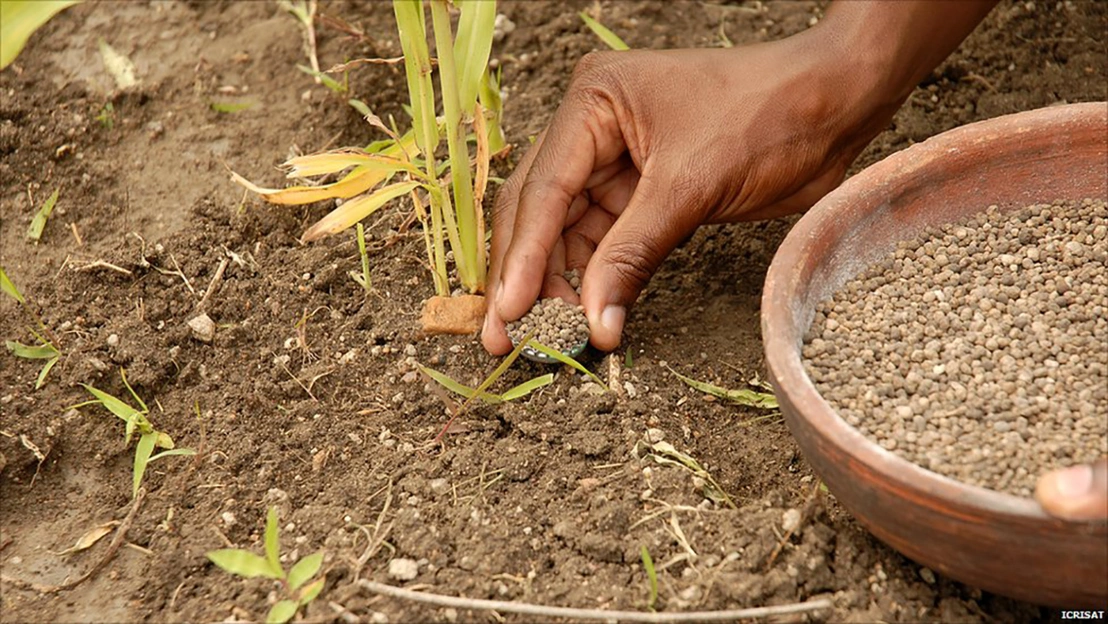Wednesday, 4 March 2026

ICRISAT scientists evaluated improved management practices such as biochar, need-based fertiliser and irrigation for their potential to sequester carbon
Results of a modelling study by ICRISAT from 2020 to 2022 reveal that the right combination of fertiliser, biochar and irrigation can potentially increase soil carbon by as much as 300 per cent over 30 years in 13 districts of Odisha and Maharashtra, contributing to global efforts to combat climate change.
The modelling study found that biochar increased carbon value in the soil by 130-300 per cent over 30 years with little difference in yield. Whereas, optimal fertilisers increased the carbon as well as yield by up to 30 per cent. The carbon sequestration increased by more than 300 per cent in combination with fertiliser, biochar, and irrigation.
As part of the project, ICRISAT scientists evaluated improved management practices such as biochar, need-based fertiliser and irrigation and assessed agricultural management practices for their potential to sequester carbon. Important crops such as cotton, sorghum, soybean, chickpea, pigeonpea and millet were studied in the region. In addition, soil sampling and the analysis of long-term experiments on improved vs traditional farmer practices and tillage and residue management practices were also conducted.
The modelling study was conducted in five districts of Maharashtra (Jalna, Dhule, Ahmednagar, Amravati and Yavatmal) and eight districts of Odisha (Angul, Bolangir, Deogarh, Dhenkenal, Kalahandi, Kendujhar, Nuapada and Sundergarh). These districts have a predominantly semi-arid climate with annual rainfall between 600 mm and 1,100 mm.
Data such as crop yield, weather, soil types and crop management practices were collected from different sources. ICRISAT scientists made projections for carbon sequestration and yields for both States and conducted long-term experiments.